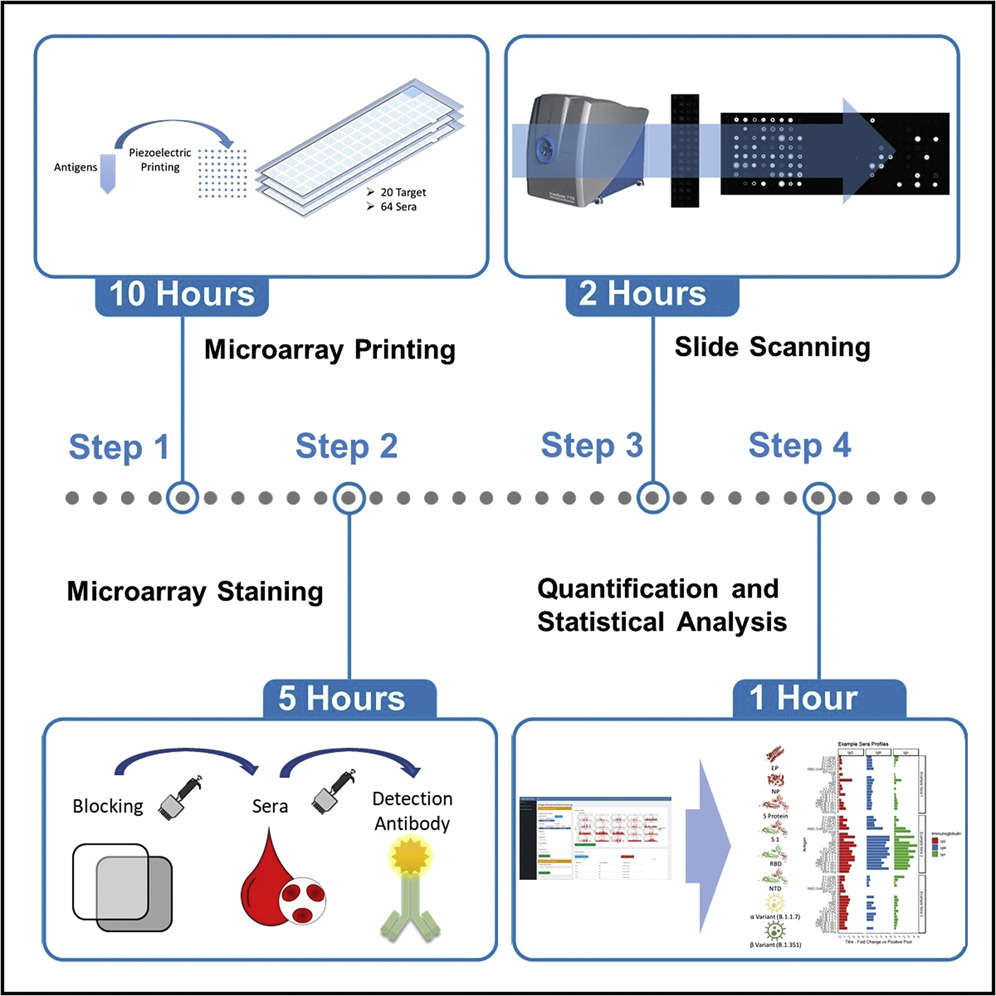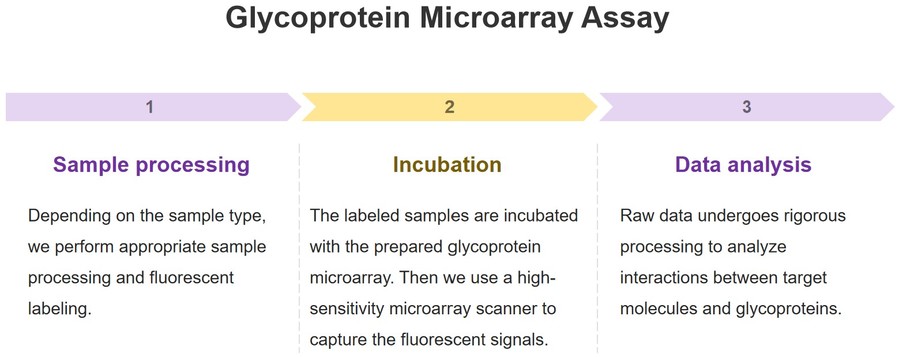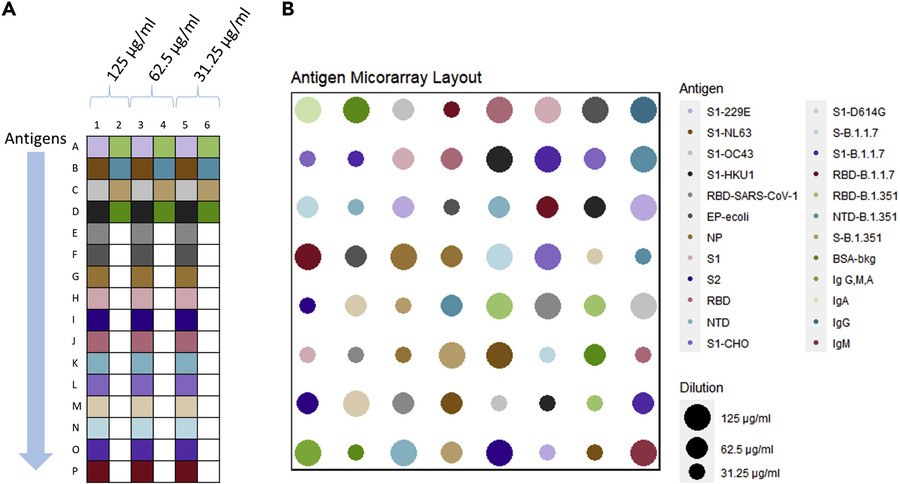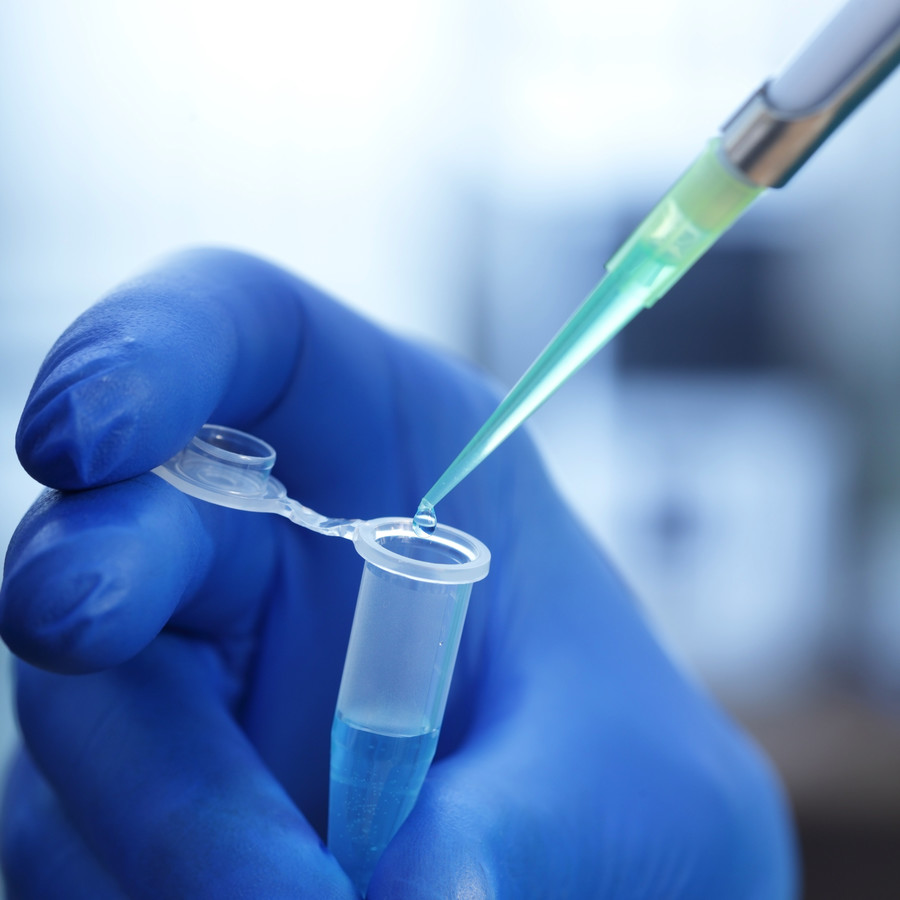


CD BioGlyco provides a variety of glycobiology-related microarray analysis services. We have rich experience in microarray analysis. Using our powerful technology platform and data analysis methods, we guarantee the success of our customers' project. We have confidence to be your essential research assistant at every moment.
Oligonucleotide arrays are the technology used to study cellular events and provide information about mRNA expression levels under various conditions. However, the level of mRNA expression is not always correlated with protein abundance. In addition, analysis of mRNA expression and DNA sequence cannot provide information about its protein. To this end, researchers have developed protein microarrays. Protein microarray can be used as a highly sensitive tool for detecting antibodies in serum. Monitoring the antibody titers of patients against specific antigens is increasingly used to diagnose a variety of diseases, including autoimmune diseases, cancer, infectious diseases and allergies, etc. In addition, protein microarrays can simultaneously measure several biomarkers.
Glycosylation is the most common post-translational modification in proteins, and abnormal glycosylation is usually related to pathological conditions. The up-regulation of unique short aberrant glycosylation on proteins may introduce new glycoprotein epitopes that can elicit autoantibodies due to lack of tolerance. In the past few decades, autoantibody responses to tumor-associated antigens have received extensive attention due to their potential as biomarkers for the early detection of cancer. In addition to using them as biomarkers, the identification of antibody targets can also reveal specific candidate vaccines, such as viruses and cancer vaccines. For this reason, the use of glycoprotein microarray is becoming more prevalent.
 Fig. 1 Antigen microarrays are used to analyze their interactions with immunoglobulins in serum. (Longworth & Dittmar, 2021)
Fig. 1 Antigen microarrays are used to analyze their interactions with immunoglobulins in serum. (Longworth & Dittmar, 2021)
The general process of CD BioGlyco's glycoprotein microarray analysis is as follows.
First synthesize glycopeptides and use HPLC to efficiently purify glycopeptides, then fix them on microarray slides. In some cases, glycopeptides are modified after synthesis by the enzymes such as glycosyltransferases in solution or in situ on microarray slides. Then the constructed glycoprotein microarray is incubated with samples that may interact with glycoprotein, and finally the binding is detected by fluorescence detection or label-free methods (mass spectrometry or surface plasmon resonance imaging).
Glycoprotein microarrays involve fixing a series of well-characterized glycoproteins onto a solid surface and analyzing them based on the specificity of different intermolecular interactions, providing strong support for disease research, vaccine development, and other applications. When we incubate biological samples (such as serum, cell lysates, or proteins) with the chip, the binding components interact with the immobilized glycoproteins. By analyzing the binding patterns on the chip, we characterize the specificity of protein binding. The specific experimental workflow includes the following steps:
Our glycoprotein microarray analysis is suitable for various complex proteins, cell lysates, serum, plasma, culture supernatants, tissue homogenates, etc. Depending on the sample type, we perform appropriate sample processing and fluorescent labeling.
We immobilize glycoproteins on microarray slides. Following incubation, the labeled samples are incubated with the prepared glycoprotein microarray to facilitate specific interactions under optimized conditions.
After incubation and washing to remove non-specific binders, we use a high-sensitivity microarray scanner to capture the fluorescent signals from bound molecules.
Raw data undergoes rigorous processing to analyze interactions between target molecules and glycoproteins. If special requirements exist, we also incorporate additional techniques such as mass spectrometry for detailed analysis. Ultimately, we deliver a comprehensive analytical report including experimental protocols, raw data, result analysis, and biological significance interpretation.

Technology: Antigen microarray
Journal: Star Protocols
Published: 2021
Results: This study constructed an antigen microarray and used it to analyze the interaction between the antigens contained on the microarray and the content of immunoglobulins. The types of antigens on the constructed microarray include envelope proteins, nucleocapsid proteins, and spike proteins from different viruses. Analysis using this microarray requires only minimal reagents and sample input and can be applied to a variety of potential target antigens. This study provides support for the construction and application of glycoprotein microarrays.
 Fig.2 Antigen layout on the microarray (Longworth & Dittmar, 2021)
Fig.2 Antigen layout on the microarray (Longworth & Dittmar, 2021)
CD BioGlyco's advanced experimental equipment and well-trained research personnel provide guarantee for customers' glycan-related microarray analysis services. With our high-quality services, we have won praise from customers all over the world.
Customers can contact our employees directly and we will respond promptly. If you are interested in our services, please contact us for more detailed information.

Reference
